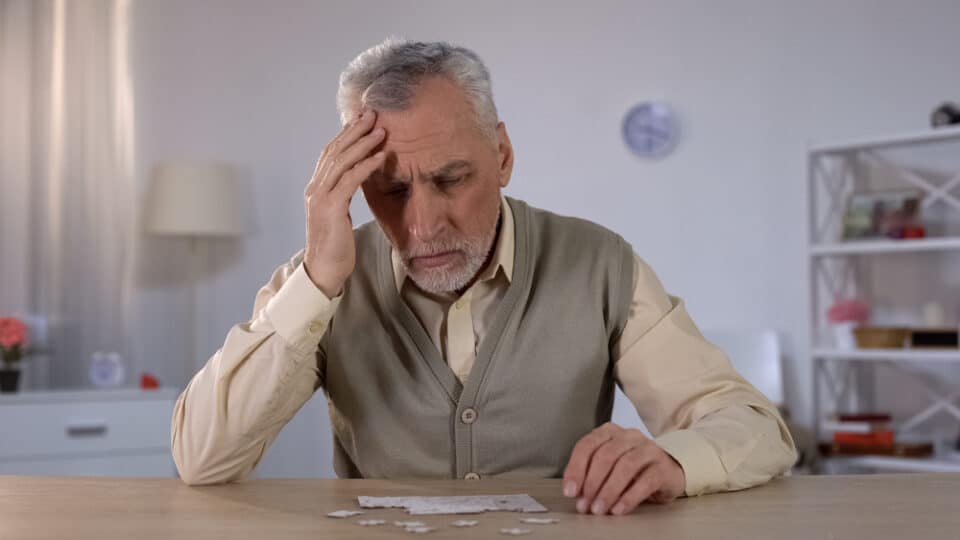A drop in testosterone levels with age is normal for men. However, if the resulting signs become a burden, you should definitely take action. Find out here what you can do personally as a man to combat low testosterone levels.

What is testosterone and why can a lack of testosterone occur in old age?
Testosterone is the male sex hormone that is produced in the testicles.
- The hormone controls the ability to reproduce and is responsible for a healthy organism overall.
- In addition to sexual function, testosterone influences muscle growth, fat metabolism and bone density.
- During puberty, testosterone causes secondary male sexual characteristics to develop. (Facial) hair increases, the voice deepens, muscle mass builds up and bone size increases. Sexual maturity and the production of sperm cells occur.
Men produce around 2.5 to 11 mg of testosterone at the peak of their virility. However, production of the hormone begins to decline at the end of puberty.
How does a man recognize that his testosterone levels are falling?
It is quite natural for testosterone levels to vary in healthy men. During the day, testosterone levels are highest in the morning and in the morning and decrease as the day progresses. With the physical changes of old age, the testosterone level slowly decreases. If the testosterone level drops acutely, it can cause unpleasant symptoms for those affected. Such symptoms include, for example
- Decrease in sexual desire,
- Erectile dysfunction,
- Regression of the musculature,
- Reduction of the testicles,
- an increase in abdominal fat,
- but also cognitive disorders such as impaired spatial perception.
Because a testosterone deficiency can also be caused by illnesses, you should definitely consult a doctor if you experience such symptoms.
Is hormone replacement therapy necessary for testosterone deficiency?
If no disease is present, it may be a testosterone deficiency in old age or the so-called andropause. It is comparable to the menopause in women and is often a normal part of the ageing process. From around the age of 40, testosterone levels fall and eventually stabilize at a normal level.
Hormone replacement therapy is very controversial in cases of testosterone deficiency. This is usually associated with many side effects. If the body is supplied with the hormone from outside, the body’s own production decreases even more. A downward spiral begins.
What tips help against testosterone deficiency?
With an appropriate lifestyle and a healthy diet, you can prevent a rapid drop in testosterone levels.
- Sufficient sleep and less stress are the basic prerequisites for a normal testosterone level.
- Regular exercise, especially strength training and muscle building, keep testosterone levels up.
- Avoid sugar, alcohol and bad fats! Testosterone production is reduced with a poor diet and obesity.
- Healthy fats: Unsaturated fatty acids from coconut oil, olive oil, nuts or avocado stimulate the production of healthy fats. These are needed for testosterone production.
- Vitamin B, vitamin D, zinc: They are important for the production of enzymes that support testosterone production. B vitamins are found in fish, green vegetables and dairy products. Vitamin D is produced by the body itself through the sun. Testosterone production can also be reduced, especially in the case of a zinc deficiency. Zinc is found in vegetables, dairy products, eggs and red meat.

Support for maintaining testosterone levels
A normal testosterone level can be well supported by phytopreparations from medpro.
- ProstaSolTM contains eight valuable medicinal plants, including plant sterols, which can be the starting material for testosterone production. Curcuminoids can also support the immune system.
- Prostaline-CTM from medpro contains zinc and selenium as well as lycopene from tomato extract, curcuminoids and lignans, which can support male health in particular.
Contact the experts at medpro and let them advise you!



